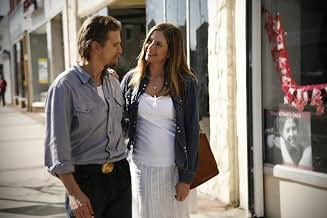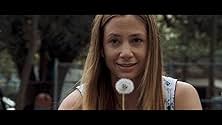IMDb RATING
7.0/10
3.2K
YOUR RATING
A young boy is torn away from his adoptive parents by his alcoholic, abusive birth parents.A young boy is torn away from his adoptive parents by his alcoholic, abusive birth parents.A young boy is torn away from his adoptive parents by his alcoholic, abusive birth parents.
- Awards
- 20 wins
- Director
- Writers
- All cast & crew
- Production, box office & more at IMDbPro
Storyline
Did you know
- TriviaThe scene where Berry Pepper's character, Rip, is bitten by his dog was not part of the script until the dog decided to improvise it. Berry Pepper was actually bitten by his fellow actor, the dog.
- GoofsIn the kitchen scene after Rip Porter smashes his empty bottle and gets consoled by Wendy, the positions of his head and of their hands around each other's heads change too suddenly between the subsequent shots while lines are being spoken across the cuts.
- Quotes
Wendy Porter: There is one thing that - -- that you could do for me. I would like Joey to know that he has two mothers: one that loved him so much that she couldn't let him go, and one that loved him so much that she had to.
- SoundtracksThe Lord Bless You and Keep You
Words and Music by Peter C. Lutkin
Performed by Coral Ridge Presbyterian Church Chancel Choir
Choir directed by John L. Wilson
Featured review
"Adoption is a redemptive response to tragedy that happens in this broken world" (Katie J. Davis, Kisses from Katie: A Story of Relentless Love and Redemption).
I have selected this quote to open my review because it seems that the key aspect which underlines the 'message' of Jon Gunn's movie is adoption collaborating with redemption. Before getting into a variety of psycho-emotional development of captivating and educational human experience, it is important to state that at the heart of this movie is a 6 year old boy Joey (Maxwell Perry Cotton). This little character leads us into the inner world of child's fragile feelings which are put to test in two families: his real one and the adoptive one. However, the movie does not open with a child but a parent, Rip Porter (Barry Pepper) who is clearly a grown up but not a mature man. He is a psychologically wounded man who finds for himself a victim, his wife Wendy (Mira Sorvino). The opening mis-en-scene proves that assumption right. Marital violence within the marital status leads his wife to give up the upbringing of her newborn baby, her dreams appear to be in vain...yet, 7 years later, bad events may be turned into a renewed, redemptive reality no one would have ever predicted.
Not to reveal much about the content which really keeps viewer's attention, let me make myself clear about what I mean by 'captivating and educational human experience' The strongest point of LIKE DANDELION DUST is the powerful depiction of FEELINGS. This is neither a fake sentimentalism or any tear jerking hypnosis. You can find anything human in this story from nervous breakdowns, inner struggles, determination, honor to sacrifice, spiritual growth and redemption. How can a story brought to screen fail to captivate viewers when they see something that authentic? Four characters, two married couples provoke our insightful viewing into what a human character really is and into a prospect how they can change and what they may become...if only they want. Although Joey is at the center of attention, it is in the way they deal with him when we get to know them. But, this appears to be extremely important to mention: no judgment is being made, none of the characters is good or bad. These terms simply do not work, which makes it possible to make a starting point truly psychological. Let me focus on this point more deeply. But before this, consider the crucial aspect in all of them: ALL CHARACTERS CHANGE. Isn't that educational at the same time?
THE PORTERS: Being perhaps the least sympathetic of them all, Rip Porter is most memorable. His neurotic nature combined with addiction and prison experience do not allow him to be a good father to Joey and a good husband to Wendy. His fault is, consequently, the most serious one and yet, it is not his last chance. There is constantly an opportunity to change. Along with his character, there is a never ending theme of redemption indicated, so widely discussed in cinema from its very beginnings, just to mention THE PHANTOM CARRIAGE (1921). Rip, played vibrantly by Barry Pepper, supplies us with an intriguing insight into an unpredictable, furious addict with a slight bit of honor still left. His scenes with Wendy and Joey may shock at certain moments but when we constantly keep in mind the opening scene of the movie, it appears easier to justify his behavior or at least see a clear reason for why he is the way he is. Doesn't it appear parallel to real life? Wendy is a good loving mother; yet her status cannot allow her to be the way she dreams to be. Her sacrifice is the greatest and her struggles seemingly unendurable...consider the scene she tries to stop her husband from drinking.
THE CAMPBELLS: The adoptive parents are an absolutely different sort of family. While Jack is a settled down man of career and high financial status, he takes everything for granted. His offer to Rip that results in a fight is a beautifully psychological presentation of prefabricated materialist suggestions vs unpredictable eccentric outbursts. Money simply cannot interfere in the context like this and it cannot. Cole Hauser gives an adequate performance of a settled 'gentleman' and, at the same time, a 'requiring' husband. Molly is an absolutely different wife than Wendy is and clearly less prone to...determination. Doesn't our lifestyle with its conditions shape ourselves?
In between them comes a CHILD that renews, a CHILD that offers change, a CHILD that leads to sacrificial love, a CHILD that seems to know love more than the wisest elderly geniuses, a CHILD that does not need linguistic ornaments or legal regulations in order to realize where genuine feelings are. And this little CHILD brings something most desirable and yet so hard to achieve: redemption. That is, consequently, so trustworthy, that is so real and so unique about the film, so educational and so captivating. Maxwell Perry Cotton's performance is worth attention and can be considered as one of the great child achievements in cinema. Many scenes are so authentically played that you as a viewer may quite forget it is not a real story but only a film.
A highly recommended movie with clear redemptive psychology and trustworthy storytelling that is not only appealing to modern viewers but very thought provoking. There is a HUMAN solution to the tragedy of the broken world, after all.
I have selected this quote to open my review because it seems that the key aspect which underlines the 'message' of Jon Gunn's movie is adoption collaborating with redemption. Before getting into a variety of psycho-emotional development of captivating and educational human experience, it is important to state that at the heart of this movie is a 6 year old boy Joey (Maxwell Perry Cotton). This little character leads us into the inner world of child's fragile feelings which are put to test in two families: his real one and the adoptive one. However, the movie does not open with a child but a parent, Rip Porter (Barry Pepper) who is clearly a grown up but not a mature man. He is a psychologically wounded man who finds for himself a victim, his wife Wendy (Mira Sorvino). The opening mis-en-scene proves that assumption right. Marital violence within the marital status leads his wife to give up the upbringing of her newborn baby, her dreams appear to be in vain...yet, 7 years later, bad events may be turned into a renewed, redemptive reality no one would have ever predicted.
Not to reveal much about the content which really keeps viewer's attention, let me make myself clear about what I mean by 'captivating and educational human experience' The strongest point of LIKE DANDELION DUST is the powerful depiction of FEELINGS. This is neither a fake sentimentalism or any tear jerking hypnosis. You can find anything human in this story from nervous breakdowns, inner struggles, determination, honor to sacrifice, spiritual growth and redemption. How can a story brought to screen fail to captivate viewers when they see something that authentic? Four characters, two married couples provoke our insightful viewing into what a human character really is and into a prospect how they can change and what they may become...if only they want. Although Joey is at the center of attention, it is in the way they deal with him when we get to know them. But, this appears to be extremely important to mention: no judgment is being made, none of the characters is good or bad. These terms simply do not work, which makes it possible to make a starting point truly psychological. Let me focus on this point more deeply. But before this, consider the crucial aspect in all of them: ALL CHARACTERS CHANGE. Isn't that educational at the same time?
THE PORTERS: Being perhaps the least sympathetic of them all, Rip Porter is most memorable. His neurotic nature combined with addiction and prison experience do not allow him to be a good father to Joey and a good husband to Wendy. His fault is, consequently, the most serious one and yet, it is not his last chance. There is constantly an opportunity to change. Along with his character, there is a never ending theme of redemption indicated, so widely discussed in cinema from its very beginnings, just to mention THE PHANTOM CARRIAGE (1921). Rip, played vibrantly by Barry Pepper, supplies us with an intriguing insight into an unpredictable, furious addict with a slight bit of honor still left. His scenes with Wendy and Joey may shock at certain moments but when we constantly keep in mind the opening scene of the movie, it appears easier to justify his behavior or at least see a clear reason for why he is the way he is. Doesn't it appear parallel to real life? Wendy is a good loving mother; yet her status cannot allow her to be the way she dreams to be. Her sacrifice is the greatest and her struggles seemingly unendurable...consider the scene she tries to stop her husband from drinking.
THE CAMPBELLS: The adoptive parents are an absolutely different sort of family. While Jack is a settled down man of career and high financial status, he takes everything for granted. His offer to Rip that results in a fight is a beautifully psychological presentation of prefabricated materialist suggestions vs unpredictable eccentric outbursts. Money simply cannot interfere in the context like this and it cannot. Cole Hauser gives an adequate performance of a settled 'gentleman' and, at the same time, a 'requiring' husband. Molly is an absolutely different wife than Wendy is and clearly less prone to...determination. Doesn't our lifestyle with its conditions shape ourselves?
In between them comes a CHILD that renews, a CHILD that offers change, a CHILD that leads to sacrificial love, a CHILD that seems to know love more than the wisest elderly geniuses, a CHILD that does not need linguistic ornaments or legal regulations in order to realize where genuine feelings are. And this little CHILD brings something most desirable and yet so hard to achieve: redemption. That is, consequently, so trustworthy, that is so real and so unique about the film, so educational and so captivating. Maxwell Perry Cotton's performance is worth attention and can be considered as one of the great child achievements in cinema. Many scenes are so authentically played that you as a viewer may quite forget it is not a real story but only a film.
A highly recommended movie with clear redemptive psychology and trustworthy storytelling that is not only appealing to modern viewers but very thought provoking. There is a HUMAN solution to the tragedy of the broken world, after all.
- marcin_kukuczka
- Dec 26, 2012
- Permalink
Details
Box office
- Budget
- $2,500,000 (estimated)
- Gross US & Canada
- $352,810
- Opening weekend US & Canada
- $77,960
- Sep 26, 2010
- Gross worldwide
- $352,810
- Runtime1 hour 40 minutes
- Color
- Aspect ratio
- 2.35 : 1
Contribute to this page
Suggest an edit or add missing content





































